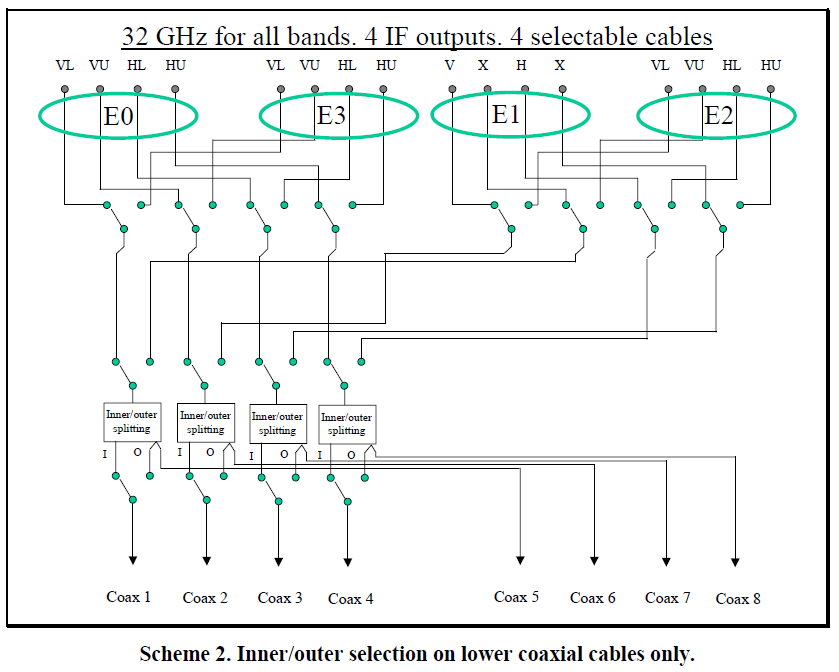|
⇤ ← Revision 1 as of 2012-01-19 08:56:56
Size: 995
Comment:
|
Size: 1167
Comment:
|
| Deletions are marked like this. | Additions are marked like this. |
| Line 1: | Line 1: |
| Line 5: | Line 4: |
| '''Figure 4.2:''' Overview of band combinations observable after the Nov 2011 upgrade (with a new switching box). | '''Figure 4.2:''' Overview of band combinations observable after the Nov 2011 upgrade (with a new switching box). See below for the Oct-2012 upgrade. |
| Line 17: | Line 16: |
| * In October 2012, we upgraded the switch box to offer more options when using E150. See [[attachment:EMIR-Oct2012-E150-mod.pdf|here]]. |
IF switch box

Figure 4.2: Overview of band combinations observable after the Nov 2011 upgrade (with a new switching box). See below for the Oct-2012 upgrade.
- General band selection rules:
- Only four IF outputs (of 8GHz for E0, E2, E3, or of 4GHz for E1), from a single receiver or any of the band combinations E0/E1, E0/E2, E1/E3, can be used simultaneously.
- Only a maximum of 4 inner bands can be selected.
- IF-cables 1-4 can be connected to the inner or outer bands. IF-cables 5-8 can only be connected to the outer bands.
- Selection of IF outputs is restricted by the following exclusion table (RxA+RxB refer to E0/E1, E0/E2 or E1/E3):
- VL on RxA excludes the use of VU on RxB
- VU on RxA excludes the use of VL on RxB
- HU on RxA excludes the use of HL on RxB
- HL on RxA excludes the use of HU on RxB
- WILMA, 4MHz, and VESPA can only be connected to IF cables 1-4.
In October 2012, we upgraded the switch box to offer more options when using E150. See here.
